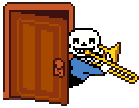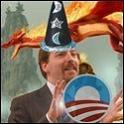|
ulmont posted:A nonexhaustive list of bits Ulmont liked in The Name of the Wind, Chapter 3: What's so important you liking a handful of sentences in a given chapter? quote:The prologue, “A Silence of Three Parts” is in an omniscient and distant “fantasy style” narration. Still hilariously bad.
|
|
|
|

|
| # ? May 17, 2024 07:04 |
|
Over 100 new posts. The new book release date must have been.. oh.
|
|
|
|
LET’S READ THE KINGKILLER CHRONICLE CRITICALLY Part 11: “I slid softly back into unconsciousness as soon as I no longer had the story to hold my attention.” In Chapter 23, “The Burning Wheel,” Kvothe wakes up heavily injured and stumbles to Trapis (the caretaker of disabled children) for shelter. One of the bound children demands a story, to which Trapis recounts the story of Tehlu, around whom the principal religion of the world revolves. Tehlu created the world, which has become overrun with demons and the wickedness of man. He discovers a virtuous woman and births himself into the world through her. He matures into an adult in a week, and starts to get work against demons. He offers the wicked to repent to join him (during his first outing, seven demons refuse him). He spreads his teaching, and hunts down the greatest of demon, Encanis (who happens to resemble the leader of the Chandrian). He binds Encanis to a wheel and sacrifices himself to bury him. quote:“Fool!” he wailed. “You will die here with me. Let me go and live. Let me go and I will trouble you no further.” And the wheel did not ring out, for Encanis was truly frightened. It’s a weird combination of pagan and Christian motifs. Tehlu is a cross between a pagan warrior-god and a Biblical prophet. Instead of dying to change the order of things, Tehlu dies to restore lost social harmony. The prose is also weird. Phrases like “unpleasant dream” when applied to demon lords. Trapis is explicitly identified as a poor storyteller, but it’s rather weird for Kvothe to repeat the poor version of the story at all. It makes perfect sense to explain an aspect of the world, but logically, his intended audience would already know the story. It is also odd that this one story summarises the entire mythology of a religion. The point, narratively, is to follow up on all that demon business from the early chapters. Thematically, it doesn’t add much. The descriptions of the demons are really on the nose, and it is unclear what they represent in the grand scheme of Kingkiller: the corrupting unknown? Ultimate evil? Later it's revealed that the story describes Fae creatures. It doesn’t provide much characterisation, save to explain why the Church is grim and forbidding, but the Church remains as vague as ever. It's inoffensive, but takes too long to establish little. In Chapter 24, “Shadows Themselves,” Kvothe recounts how he learns to survive on the streets. I have no problem with Rothfuss summarising this: the violence has been affecting enough, and there's no real need for more. But more bafflingly, this fantasy world also includes stereotypical drug addicts. I said in another post that the setting exists merely to provide whatever motifs are needed even if they make little sense together. This is one such example: quote:I learned how to beg. It was a very practical application of acting with a very difficult audience. I did it well, but Waterside money was tight and an empty begging bowl meant a cold, hungry night. While sleeping one night in his rooftop shelter, he witnesses a gang of young men chasing down and apparently raping a young boy. It turns out that Kvothe was himself chased down similarly. quote:I’d been chased before at night, several times. I’d been caught too, months ago. Looking down, I was surprised to find a heavy red roof tile in my hand, ready to throw. He refrains from acting, though, knowing that he’s outnumbered, and has to remain hidden. Personally, I’m glad that Rothfuss didn’t describe a graphic rape scene, but like the whole Tarbean sequence, its inclusion has to be questioned. It’s a short chapter, and Chapter 25, “Interlude—Eager for Reasons” returns to Waystone Inn. Kvothe desires a pause for having had to recall all of this. It’s a short chapter, but it is another good display of Rothfuss’s fixation on meaningless mannerisms: quote:Kvothe pushed himself away from the table. “That’s enough of Tarbean’s darker side, I imagine.” He came to his feet and gave a great stretch, arms over his head. (Yes, Kvothe shakes his head twice in a row. That might be just my edition, though). Notice again how many words are devoted to describing shifts in stance, expression, and gestures – its literary white noise. They could be removed without any loss. And I have done so here: quote:“That’s enough of Tarbean’s darker side, I imagine.” Notice how much better the dialogue flows when it’s not constantly interrupted. Rothfuss wants to visualize a scene, but there is nothing compelling in it that demands visualizing. And the content is also bizarre. Like I mentioned earlier, the possibility of finding other Edema Ruh is not even closed off, it’s simply not even raised at all. It illustrates the central problem of the sequence between the Chandrian attack and Kvothe’s entry into the university: it is narratively and thematically pointless. Kvothe will eventually leave behind poverty like old clothes (this is the actual metaphor employed within the story). His time in the wilderness and in Tarbean are supposed to be his time away from society, but it accomplishes nothing. It provides no insight into poverty, class, or society. Kvothe is equally antagonized by the poor and the rich, so one would surmise that Kvothe is a kind of eternal outsider. But the whole sequence never discusses his "gypsy" roots. He is marginalised by his own choices. One might assume that the story reflects how Kvothe passes through different roles and stations in life, but precious little is ever done with this theme. Rothfuss covers this illogicality by insisting that Kvothe is mentally unsound: he fears others, and parts of his mind are “asleep”. If anything, this makes the sequence worse, because it admits that the sequence is senseless and pointless. There is no insight into his psychology or society: Kvothe is merely detained for a while until he chooses to leave. In The Egyptian, Sinuhe is seduced by Nefernefernefer and loses his home, wealth, and even family for his lust. He has to work at the House of Death, where corpses are prepared for burial, just to pay for his own parents to be embalmed. Everything sacred is degraded, and SInuhe figuratively passes through his own underworld: The Egyptian posted:Since I had volunteered to work among them, the corpse washers supposed me to be like one of themselves, and they hid none of their actions from me. Had I not already witnessed worse things, I should have fled appalled at the way in which they defiled the bodies of even the most distinguished, mutilating them in order to sell to sorceresses the organs these had need of. If there is a Western Land—which for my parents’ sake I hope there may be—I believe many of the dead will marvel at their own dismembered condition when they start upon their journey, despite the sums paid to the temple for their burial. It’s perverse, but that is its purpose. The sequence is there to show the lowest parts of society. Sinuhe befriends outcasts, and buries his parent’s bodies illegally in the Valley of the Kinga among past Pharaohs. There he meets a mutilated convict freed from the mines by the Pharaoh's utopian command, and robs and defiles a tomb with him in the City of the Dead. All that is sensible and holy is negated here, and humanity reveals itself without any pretences. For Rothfuss there is no such purpose. The Tarbean sequence is merely a gallery of brutalities. quote:Kvothe stirred his cider with a long-handled spoon as he made his way back to the table. “You must also remember that I was not in my right mind. Much of me was still in shock, sleeping if you will. I needed something, or someone, to wake me up.” JUST ROTHFUSS THINGS quote:“Ben’s training has given me a memory so clean and sharp I have to be careful not to cut myself sometimes.” BravestOfTheLamps fucked around with this message at 16:42 on Sep 22, 2016 |
|
|
|
All the "prove this is good in quantitative terms" can be summed up people like bad/trash fiction for a variety of irrational reasons. Either its a guilty pleasure, a personal escapist fantasy, or just not giving a poo poo about good literature and consuming largely mediocre products because they've never challenged themselves to read a complex work that wasn't forced on them in high school. Why do I like Name of the Wind? Well when it started out it came off as expressive and unique, a kid gets wrapped up in a massive world spanning conspiracy, fends for himself in an uncaring world, and through street smarts and naturally being a genius cons his way into making it big (basically the start to any jrpg if you think about it). He's always got a leg up on his superiors and always finds a little trick to come out on top. It's fun to read that stuff for me and I read a lot of mediocre fantasy and sci-fi mostly for the interesting way new systems/tech/magic/worlds and constructed and interact with the characters. I don't think critically about the text because there's almost no depth to it, something I've noticed to my detriment when reading much better written material and missing subtle details and subtext. The Kothe stuff was okay but pretty garbage, and I only liked it for the little breadcrumbs it dropped for what big even happened. Everything involving Deanna quickly turned to poo poo as Kvothe was quickly reduced to the atypical nice guy who's a great charmer but can't close because he's not rich enough to afford her/be her patron. WMF I read because I was already emotionally invested in the story and expected it to take him out of magic college and into the vast unexplored world I wanted to know more about. Instead I got sex faeries, sex ninjas, Kvothe going from virgin to pussy destroyer in one fell swoop, oh and also he's still in magic school, so not even the first phrase on the dust jacket of NoTW has been told yet, and there were 4-5 other major ones. It was disappointing but like everyone else who's making GBS threads all over the books here I'm certainly going to read the third because of time I put into the first 2. jivjov posted:I re-read NotW and WMF on a regular basis, probably up to my 10th or so reading of the pair, more for the first. I still find them highly enjoyable. So you read Rothfuss 2-3x a year a least. You're almost worse then that 14 year old who posted the thread about how much of a self taught genius he was for reading Das Kapital 16 times. You could've spent 18 of those reading periods reading other books and having a wider basis to compare NoTW and WMF to in terms of quality instead of getting 100% emotionally invested in a single pair of books that honestly aren't great subjectively, and technically only good because the genre is so used to poo poo authors cranking out unfinished multi-book epics where by book 5 you need a spreadsheet to make sense of anything.
|
|
|
|
pentyne posted:So you read Rothfuss 2-3x a year a least. You're almost worse then that 14 year old who posted the thread about how much of a self taught genius he was for reading Das Kapital 16 times. You could've spent 18 of those reading periods reading other books and having a wider basis to compare NoTW and WMF to in terms of quality instead of getting 100% emotionally invested in a single pair of books that honestly aren't great subjectively, and technically only good because the genre is so used to poo poo authors cranking out unfinished multi-book epics where by book 5 you need a spreadsheet to make sense of anything. Go gently caress yourself. I don't shame you for your reading habits, don't shame me for mine. In fact, I just finished up the last book I was reading, I'm going to re-read Name of the Wind again solely to spite you. What the hell is it about this thread that invites people to be so loving judgmental, not of the books themselves but of other people's enjoyment of them?
|
|
|
|
jivjov posted:Go gently caress yourself. I don't shame you for your reading habits, don't shame me for mine. I believe it's because people like you get so ridiculously defensive about it.
|
|
|
|
neongrey posted:I believe it's because people like you get so ridiculously defensive about it. Again, I don't give a single solitary drat if someone doesn't like the Kingkiller books. That's fine, and i totally respect the analysis posts about why a particular person doesn't like the books. But nobody has the right or even the ability to tell someone "you did not actually enjoy this". It is physically impossible for them to be in my head space and know what I did or didn't enjoy. Couple that with this elitist "you are doing it wrong" attitude and the horseshit "you could be doing something else with your time" and you just have a whole mess of people acting like they're the only person with an opinion that matters. It is not "ridiculously defensive" to assert the autonomy of my own thoughts and feelings.
|
|
|
|
Jesus Christ Jivjov ...
|
|
|
|
neongrey posted:I believe it's because people like you get so ridiculously defensive about it. jivjov posted:So you can gently caress right the hell off with your "I am the sole arbiter of good and bad, and you're too bad at reading to know better" routine. jivjov posted:There. Have I managed to justify myself to you yet? Is the great and powerful GodKing of Enjoyment, forums poster BravestOfTheLamps willing to admit that I was not lying when I professed to enjoy a book I have read? Or will you continue to be a ruthless dictator; hellbent on telling me what my feelings and emotions are? jivjov posted:So; I again say to gently caress right off with your elitist, smug, condescending horseshit. jivjov posted:Are you seriously this loving dense? YOU. CANNOT. TELL. ME. WHAT. I. ENJOY. jivjov posted:Go gently caress yourself. 
BravestOfTheLamps fucked around with this message at 13:45 on Mar 1, 2016 |
|
|
|
It is not "ridiculously defensive" to assert the autonomy of my thoughts and feelings. You do not get to tell me what I enjoy.
|
|
|
|
jivjov posted:It is not "ridiculously defensive" to assert the autonomy of my thoughts and feelings. You do not get to tell me what I enjoy. I'm telling you that you have lovely taste and that your thoughts and feelings make you a loving idiot. You have told us the things you enjoy and they are the basis for a diagnosis. Here's a hint: your mother had Zika (USER WAS PUT ON PROBATION FOR THIS POST)
|
|
|
|
I deeply regret the fact that these books' most ardent defender is a man so god damned stupid he can barely form a coherent opinion about Nintendo action figures, but them's the breaks.
|
|
|
|
Oxxidation posted:I deeply regret the fact that these books' most ardent defender is a man so god damned stupid he can barely form a coherent opinion about Nintendo action figures, but them's the breaks. Hold up; have you even been to the amiibo thread, or he other Nintendo threads? I'm one of the most coherent posters in there.
|
|
|
|
It is not "ridiculously defensive" to take a stand against the jackbooted fascism of forums poster 'BravestOfTheLamps', who dares to violate my sacred autonomy with his totalitarian claims to sovereignty over my inviolate inner experience. This is the era of Trump, of Le Pen, of Putin and ISIS. We must stand in liberty's defence. The line must be drawn here.
|
|
|
|
jivjov posted:Hold up; have you even been to the amiibo thread, or he other Nintendo threads? I'm one of the most coherent posters in there. I guess that makes you king of the retards. Way to go, idiot.
|
|
|
|
CerealCrunch posted:I guess that makes you king of the retards. Way to go, idiot. That's rude. There's no need for jivjov-ing.
|
|
|
|
jivjov posted:Hold up; have you even been to the amiibo thread, or he other Nintendo threads? I'm one of the most coherent posters in there. It's time to stop posting.
|
|
|
|
jivjov likes a book that I hate and Lamps is smug and pretentious about being a Lit major. Here's my own analysis. The word 'meritorious' is dumb because nobody ever gives a coherent definition of it or justifies exactly why high literature is better than trashy genre fiction. One is not better than the other, they appeal to different tastes, and it's insane to try and push your tastes on somebody else. The artful and sophisticated use of metaphor or prosody or synecdoche appeals to the people who know how to spot them and are educated enough to appreciate them. Cool adventure stories about teenagers having sex with fairy ninjas appeals to people who don't give a poo poo about those other things and take no joy in them. There is totally nothing wrong with any of that. It's fine that a given work can be appreciated at several levels, or appeal at some levels and not others. People will, however, go to extreme lengths to justify their tastes because cognitive dissonance demands that their taste be superior. Especially people like (I presume) Lamps who are Since people like (I presume) Lamps know a lot about books, they like to attribute their appreciation of high literature to their superior education and taste, which extends into claiming that people who like trashy genre fiction are uneducated and have bad taste. Non-critics who like trashy genre fiction have no need to do this, since they don't have this consuming social identity and a need to be right about literature (though they might have that in other domains). The pretentiousness shown by the former is a defense mechanism, because they don't like to accept that books can be subjectively appreciated on levels that do not align with their own tastes, because that would damage the value of their education and their self-concept. Discussion about the literary merit of a work should not reduce down to "your opinion is wrong, my reading of this book is the objective truth and you are an idiot for not seeing it". Saying "I like this" and being countered with "I don't like this, here's why" or vice versa is good, and the goal of that is to share with other people the reasons for your liking or disliking it, that discuss interesting parts of the story and the themes and the artform, which might inspire people to look at the work differently and appreciate it in a new light, or to find flaws in it where they hadn't before, which might make them change their opinion, or it might not, or they might disagree with you and not look at it differently in the first place. It's fine. It's a meaningful human social interaction that enriches works of art and lets you get to know people better. That isn't what Lamps is doing. Because jivjov doesn't care about the high lit credentials of NotW, and just enjoys the nominal story, while Lamps has probably read way more books and seen more permutations of this type of story and has seen it done in more interesting ways, Lamps continues to assert that enjoyment of this book is objectively bad even though he is judging in on a completely different metric. That metric has no impact on jivjov's experience of the book and nobody has any right to assert that someone else's enjoyment is wrong, because the whole point of a piece of art is to make someone like it in whatever way is personal to them. Lamps is just doing his pretentious thing because he needs to justify his superiority in whatever way he can (which everyone does, but don't be a dick about it). This is all true: jivjov posted:Again, I don't give a single solitary drat if someone doesn't like the Kingkiller books. That's fine, and i totally respect the analysis posts about why a particular person doesn't like the books. Anyway keep posting, Lamps. It's interesting to read a critical take on it, even though I don't agree with it all.
|
|
|
|
BravestOfTheLamps posted:What's so important you liking a handful of sentences in a given chapter? Nothing. I'm just reminding myself - and to the extent the sentences or other extracts resonate with others, others - that there are things I enjoy in Name of the Wind. As I said earlier, for a number of very good reasons this thread has turned on Rothfuss; I'd like to not lose sight of the fact that there are entertaining passages. Jo Walton at the link I added does a better job, mind you. BravestOfTheLamps posted:While sleeping one night in his rooftop shelter, he witnesses a gang of young men chasing down and apparently raping a young boy. It turns out that Kvothe was himself chased down similarly. This is an interesting scene, in that it seems like it should be foreshadowing something like Kvothe becoming a defender of the weak to atone for his failure to act here (which, IIRC, Kvothe says has stuck with him), but then doesn't seem to go anywhere. Almost like Rothfuss wanted to underline Tarbean in a grimdark fashion, but it then seems out of step with the rest of NotW and TWMF.
|
|
|
|
Boing posted:I personally hate Rothfuss and his stupid book and I think jivjov should try reading some other books that do similar things in more interesting ways, but I'm allowed to think that, and jivjov is allowed to ignore me. Hey, I'll gladly take some recommendations on story-within-a-story, slightly pulpy, fantasy adventure to read
|
|
|
|
jivjov posted:Hey, I'll gladly take some recommendations on story-within-a-story, slightly pulpy, fantasy adventure to read This seems right up your alley.
|
|
|
|
gently caress I don't even know who's trolling who now.
|
|
|
|
The way critical discussion ideally goes is that a proposition is put forth, and arguments are presented in its favour or against it. If it cannot be proven incorrect, it must be true. Your propositions here are based on misreadings of my posts and of the concept of subjectivity. The reason I'm holding my reading as the truth is because no one has proven it to be otherwise. I have expected for someone to argue that I am incorrect in reading Kingkiller as hollow and nonsensical. Someone might try to show that the books hold great merit when read from a certain perspective. What i have expected is, in fact, for people to express their subjectivity (that is to say, their own perceptions, emotions, etc) in forms of prepositions and arguments. While I probably won't like Kingkiller, I can understand that there might be something worthwhile in it. Throughout my reading I have suggested readings that might make Kingkiller good (that it is satirical or that it is about a man journeying through different roles), but dismissed them as untrue. Proposition and counter-proposition. What people instead generally do is retreat into subjectivity instead of expressing it. In nerd circles you will find a consistent misreading of subjectivity: when something is "subjective," it means that enjoyment or appreciation of something is an inexpressible secret, and denying that means denying a person. It is perfectly fine to say, "well, I like it"... but if you want to discuss whatever "it" is in this case, then surely you should express why you find it worthwhile! Don't use "subjective" as an argument! This is the point of my argument that nobody is enjoying Kingkiller - they cannot state why reading Kingkiller is enjoyable, but instead seem to focus on paraphernalia like characters and magic systems instead of describing the act of reading Kingkiller. And I admit that I'm mostly facetious, but that people find it difficult to express what makes reading Kingkiller a distinct and worthwhile experience is telling. e: ulmont posted:Nothing. I'm just reminding myself - and to the extent the sentences or other extracts resonate with others, others - that there are things I enjoy in Name of the Wind. As I said earlier, for a number of very good reasons this thread has turned on Rothfuss; I'd like to not lose sight of the fact that there are entertaining passages. Jo Walton at the link I added does a better job, mind you. Walton's reading is the definition of "well, I like it". There's no critical awareness at all. She writes stuff like this: quote:The innkeeper—still nameless—brings stew and bread. I can’t imagine why John Scalzi has a problem with this, but then stew is one of the staple foods of my culture. What Diana Wynne Jones complained about in The Tough Guide to Fantasyland wasn’t the existence of stew in fantasy but the way people eat it around the campfire, when in fact it takes hours to cook. But they’re in an inn, they’ve had hours, and goodness knows it’s a cheap and filling way of feeding people. Scalzi might think it’s a terrible cliche when I eat it as well. (Last summer when I was in Britain the weather was awful, and I ate stew twice, in an inn and in a castle—if you’re ever in Castell Coch, near Cardiff, order the stew. It may be a cliche, but it tastes great. You can have apple pie for dessert, unless that’s a cliche, too.) ulmont posted:This is an interesting scene, in that it seems like it should be foreshadowing something like Kvothe becoming a defender of the weak to atone for his failure to act here (which, IIRC, Kvothe says has stuck with him), but then doesn't seem to go anywhere. Almost like Rothfuss wanted to underline Tarbean in a grimdark fashion, but it then seems out of step with the rest of NotW and TWMF. I find the claim that NotW was cobbled together from several taxts to be plausible. BravestOfTheLamps fucked around with this message at 20:56 on Mar 1, 2016 |
|
|
|
BravestOfTheLamps posted:What is your opinion on sex fairys and sex ninjas Honestly, if it wasn't for this thread, I hardly remembered he had sex in those scenes. I guess that only supports your criticism because if it was well written, I wouldn't forget. Still look forward to the last book, if it ever does get finished.
|
|
|
jivjov posted:Hey, I'll gladly take some recommendations on story-within-a-story, slightly pulpy, fantasy adventure to read
|
|
|
|
BravestOfTheLamps posted:What is your opinion on sex fairys and sex ninjas I don't see what the big deal about this is. Felurian is a completely plausible faerie creature. It's not like there aren't real historical myths about sex demons. Despite the obvious cringe territory of fantasy books including sex (which Rothfuss really minimizes), a semi-benevolent sex demon works as a decent introduction to the faerie realm because there's a reason for it not to just posess/kill/maim/eat Kvothe. The whole process of defeating Felurian is a little mary-sue-ish, but we can at least partially chalk that up to Kvothe having the mental fortitude that comes with being a science wizard. Sex ninjas is a sorta absurd way to describe the Adem. I guess characters in fantasy books just aren't allowed to talk about sex? I know we all have some serious aversions to it in the era of GRRM but Rothfuss treats it much more tastefully.
|
|
|
|
|
The Adem gently caress so much that they don't make the connection between loving and pregnancy. They gently caress so much that they don't even GET the data to realize that no loving equals no babies. It is not absurd to boil down their culture to sex ninjas. They gently caress and fight. There is not anything else worth saying about them.
|
|
|
|
The Felurian sequence is not terrible because it's a bizarre sex fantasy. It's terrible because it's a bad bizarre sex fantasy. quote:“No,” I looked down, my face growing hot. “I have never been with a woman.” Then I straightened and looked her in the eye as if challenging her to make an issue out of it. Yes, Rothfuss actually included the phrase "ego-polishing purposes". This is neither parody nor satire, it's played straight. I'm no fan of Guy Gavriel Kay, but I found The Last Light of the Sun decent. It's the only book I know that both includes sex with a fairy and isn't bad. Granted, I don't read LGBT stuff much. e: Sex in fiction is generally best when sublimated. Especially in genre fiction. Oh REH, your villainess just happens to tie up the love interest to whip her, gosh this really moves the story forward BravestOfTheLamps fucked around with this message at 19:15 on Mar 1, 2016 |
|
|
|
Genre authors have a terrible track record with sex scenes in general, mostly because they're like the excerpt BotL posted: they're completely about the protagonist's ego and give way too much insight into what the author finds hot. And most of the time that's pretty repellent.
|
|
|
|
Bridge of Birds fully won me over with its first sex scene told through faux-Chinese innuendos.
|
|
|
Number Ten Cocks posted:Bridge of Birds fully won me over with its first sex scene told through faux-Chinese innuendos.
|
|
|
|
BravestOfTheLamps posted:Yes, Rothfuss actually included the phrase "ego-polishing purposes". This is neither parody nor satire, it's played straight. Why is that bad? I don't see the problem here. BravestOfTheLamps posted:e: Sex in fiction is generally best when sublimated. Especially in genre fiction. Oh REH, your villainess just happens to tie up the love interest to whip her, gosh this really moves the story forward Yes and no. I don't want a blow-by-blow, but a straight fade to black isn't always the best option either. I think that in spite of the goofy metaphor name thingies, Rothfuss handles the concept tastefully. e: I swear to god that pun wasn't intentional 
ChickenWing fucked around with this message at 19:36 on Mar 1, 2016 |
|
|
|
|
The metaphors are what make it distasteful. It's just the fantasy equivalent of The Alabama Hot Pocket or whatever.
|
|
|
|
ChickenWing posted:Why is that bad? I don't see the problem here. 1. "Ego-polishing purposes" is in the mode of overt, self-aware sarcasm. Like Joss Whedon's writing if anybody still remembers that. It's something to indicate self-awareness and add levity, usually to a cliched or hackneyed scene. But the entire sequence is played straight, so it brings down an already ridiculous scene. Its anachronism adds nothing, like how The Name of the Wind seriously uses "sexual innuendo". 2. "Ego-polishing purposes" is a terrible turn of phrase. It's a plodding phrase that draws undue attention to itself, like "sexual innuendo". It has no place when reaching for poetic register. BravestOfTheLamps fucked around with this message at 21:31 on Mar 1, 2016 |
|
|
|
Also when sex scenes rely on metaphors, then that's just straight purple prose. Read Danielle Steele if that poo poo is your jam. Don't try to pretend it's good writing.
|
|
|
|
quote:I felt my face go grim. I don’t mind being called a liar. I am. I am a marvelous liar. But I hate being called a liar when I’m telling the perfect truth. Wow, he self-aggrandizes coming and going in this line. That'd be impressive if I wasn't expected to take it seriously. Also why the lack of caps from the fairy, is he jumping the bones of Sans from Undertale
|
|
|
|
BravestOfTheLamps posted:The way critical discussion ideally goes is that a proposition is put forth, and arguments are presented in its favour or against it. If it cannot be proven incorrect, it must be true. That's not how this works at all. Now, you've done a pretty good job of pulling poo poo out. For instance "The Tehlu story is a weird mash of pagan and Christian." However your argument more or less proceeds: 1. X 2. If X then Bad. 3. Therefore: Bad. And the related: 1. Many Bads 2. Therefore Novel Bad. No one is really disputing your X's substantially, but your step 2 is poorly argued and therefore your conclusion is flawed. Let's return to our example. 1. "The Tehlu story is a weird mash of pagan and Christian." 2. If something is a mash of pagan and Christian imagery, then it is Bad. 3. This sequence is bad. Unfortunately, this is doing a few things. For one, I can prove that Christmas is an objectively awful holiday using the same logic. But let's dig into this a bit more because I think the way you're forming your premises is revealing. On a more micro-level, I think this isn't the first time you've come in and said "here is a thing Rothfuss has done, this is a BAD THING." Mix high and realistic tones, mix pagan and Christian metaphors, etc. etc. You do so because the authors you like don't do it, because you've been told not to do it in writing classes, or because you're looking to start poo poo, but ultimately it boils down to "you don't like it." Subjectivity, you fickle bitch. Now, you could go in, needle out why you don't certain parts. Instead you post people who have done otherwise and who you thus prefer, however you've done a poor job articulating why that should matter to our analysis of Rothfuss. For instance, if I am ever bothered by the complex, many claused sentences of Regency era literature, I could quote any modern author's work and go 'see, look at how cleanly that prose flows.' That's not a terribly great argument though; it misses the forest for the trees, and is missing whacking great chunks of context. Saying that e.e. cummings is bad and proving it by throwing out a Robert Frost poem with 'correct' punctuation is not going to prove that e.e. cummings is bad, nor the Frost is 'better' than e.e. cummings. Sometimes you use your counter-examples to good effect, but often they're as much white noise as Rothfuss' head shakes. Zooming out to the macro-level, the assumption that a pagan-Christian imagery mash up is of course, something wonderfully problematic that I'd love to get into. I won't because it's largely a digression, but to say 'Pagan' is already to mash up a number of rich and detailed traditions with very different aesthetics, purposes, moralities, contexts. And why break of Christianity, separate it? What great distinction exists between the one or the other that we're not supposed to mix them? Again, it's a big digression and I won't chase it all the way down, but I like it as an illustration of the dangers of your 'right until proven wrong' attitude. You get caught up in your assumptions of 'correct' and 'incorrect,' by denying subjectivity you deny your own fallibility, and thus, do a very poor job of examining both your premises and the logic you use. As a result, your argument is dogshit and your analysis half-baked at best, no matter how close your reading. I'll grant, for instance, that Tarbean is a useless sequence, and that the books are useless books. Your assignment today is instead to take those analytical skills you're so desperately proud of and really dig into the whys and wherefores.
|
|
|
Oxxidation posted:Also why the lack of caps from the fairy, is he jumping the bones of Sans from Undertale None of Felurian's dialog is capitalized.
|
|
|
|
|
the JJ posted:That's not how this works at all. Irony of ironies, you have misread my proposition. BravestOfTheLamps posted:In process. I'm struggling a bit to discuss the story about Tehlu. I want to say more about the weird mix of pagan and Christian motifs, but that would be kind of irrelevant. BravestOfTheLamps posted:I'm no expert on mythology, but it's obviously a cyclical symbol. Encanis is a Satanic figure who is bound and cast out. Tehlu is a warrior-god who restores social order. It's a pagan story despite the Christian trappings. quote:It’s a weird combination of pagan and Christian motifs. Tehlu is a cross between a pagan warrior-god and a Biblical prophet. Instead of dying to change the order of things, Tehlu dies to restore lost social harmony. The prose is also weird. Phrases like “unpleasant dream” when applied to demon lords. Trapis is explicitly identified as a poor storyteller, but it’s rather weird for Kvothe to repeat the poor version of the story at all. It makes perfect sense to explain an aspect of the world, but logically, his intended audience would already know the story. It is also odd that this one story summarises the entire mythology of a religion. When I say that something is bad, I usually include negative qualifiers. BravestOfTheLamps fucked around with this message at 20:05 on Mar 1, 2016 |
|
|
|

|
| # ? May 17, 2024 07:04 |
|
ChickenWing posted:None of Felurian's dialog is capitalized. I'm not really enamored with typographical changeups in dialogue, since they're often used to disguise weakness in language or tone when establishing voice - the fairy's not going to sound more tiny and fey just because you down-sized her text. Terry Pratchett pulled it off with a fair amount of success, but that's because he treated it like a gag with the exception of a few select characters. e: had to change everything to past tense for Pratchett. Now this thread's really depressed me.
|
|
|




















